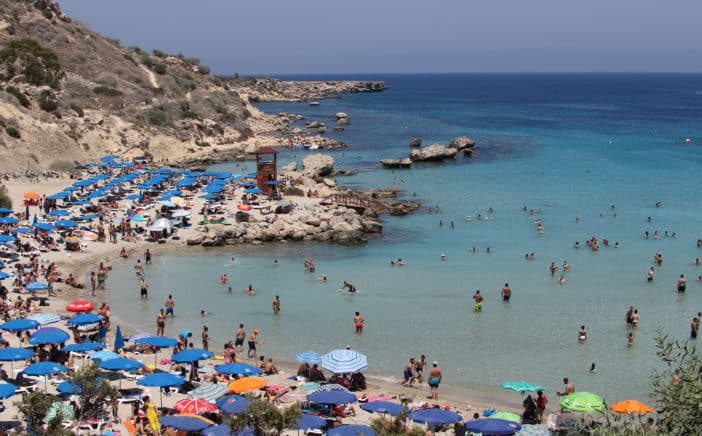According to the water development department on Sunday, total reserves in the island’s dams have fallen under 20 per cent of capacity, compared to almost double that this time last year.
Authorities are working round the clock to sort out various ongoing desalination issues, permanent secretary of the ministry of agriculture Andreas Gregoriou said.
He told the Cyprus News Agency (CNA), water cuts were not on the cards at the moment but stressed the importance of “responsible water use by consumers” to avoid possible restrictions.
There has been a lot of discussion since the beginning of the year about water management, old networks and new desalination units.
But there is another elephant in the room: the growing number of tourist arrivals. This will be the third year where numbers will reach around four million (barring all-out war in the region in 2025).
That’s at a minimum, four million extra showers and several toilet flushes per day, which means a massive additional strain on water resources without even getting into the bigger issues like golf courses and swimming pools. Many tourists will, of course, be environmentally-conscious but most won’t.
Last November, the government offered hotels a fast-track approval and subsidy to set up small desalination units. It’s now July and only one hotel, the Amathus in Limassol, has its own unit and that predates the state’s scheme.
Hotels have been slow to get on board, citing bad timing. Constructing desalination units would be disruptive to this summer’s visitors, they said.
The excuse doesn’t quite wash as a unit could have been built in a couple of months during the slow season… if things worked efficiently in Cyprus. But there will always be a reason not to want to disturb guests, so we can expect more mileage out of that particular excuse.
Where hoteliers do have a point is that easy creation of units would be limited to beach hotels. Those further inland would end up causing even more disruption.
There is also another issue contributing to the growing problems associated with higher arrivals vis-à-vis the environment. That is Airbnb.
When it came to licensed accommodation, numbers were limited by default. But tens of thousands of new beds are now on the market – close to the number of officially designated ones apparently, effectively doubling capacity.
With this new variable, at what point will the word over-tourism enter the vocabulary of stakeholders? At what stage will Cyprus declare there’s “no room at the inn” or “there’s not enough water” as Sicily did last year?
Have tourism authorities studied this or attempted to calculate the red line where tourism moves from a net positive to a net negative?
How many tourists can we sustainably handle every year? Will Cyprus join the growing list of countries where tourism is experiencing a local backlash? Locals must cut water usage and farmers don’t have enough supply. Or is it blasphemy to question the increasing number of arrivals?
When stakeholders talk about sustainable tourism are they talking about sustaining the island’s resources or sustaining arrival numbers? It’s often hard to tell.






Click here to change your cookie preferences